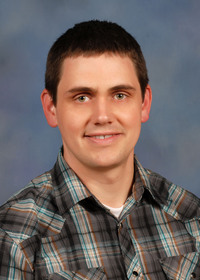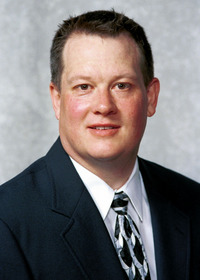Information Possibly Outdated
The information presented on this page was originally released on April 11, 2013. It may not be outdated, but please search our site for more current information. If you plan to quote or reference this information in a publication, please check with the Extension specialist or author before proceeding.
Raised beds help those with limited mobility
PURVIS -- Conventional gardening can be a challenge for individuals who rely on wheelchairs for mobility. But a project by the Pine Belt Master Gardeners proves raised beds can make growing vegetables a little easier for everyone.
Liz Sadler, county coordinator with Mississippi State University’s Extension Service in Lamar County, said there is a growing interest in gardening in the county. This prompted the Master Gardener group to build demonstration beds as an educational project.
Sadler served as the group’s advisor before Ross Overstreet took over those duties in January. She said they wanted the project to reflect the interests and needs of the county’s population.
“We have a lot of retired people with a limited amount of space to grow a garden,” Sadler said. “Some senior citizens have limited physical ability and are not able to tend a large plot of land. So, those two factors really guided us toward handicapped-accessible raised beds.”
The Master Gardeners have installed four demonstration beds at the Lamar County Extension office. Two of the beds are waist-high, with seating on two sides. These beds can be used to grow large plants, such as tomatoes and peppers.
The other two beds are high enough to accommodate a wheelchair or a walker with a seat. These beds are also called salad tables because they are best for growing shallow-rooted plants, such as lettuce and radishes.
With only four to six inches of soil, the salad tables are also light enough to be portable. This ensures they get optimal sunlight or shade, depending on the time of the year and the choice of plants, said Paul Cavanaugh, vice-president of the Pine Belt Master Gardeners and leader for the raised bed project.
Both types of beds make gardening more convenient.
“These beds are great for anyone who relies on a wheelchair for mobility or who is not able to bend or get up and down,” Cavanaugh said. “But anybody who wants to make gardening a little easier would benefit from these type beds.
“I am growing a salad garden in one myself. It is very convenient. I don’t have to get up and down or do a lot of bending. I can just walk around the table and tend to my plants,” Cavanaugh said.
Raised beds also reduce the amount of maintenance that conventional gardens require.
“The design of these beds would definitely be a great option for any gardener who wants to eliminate a lot of the physically demanding upkeep of a garden,” said Overstreet, new Extension agriculture agent for Lamar County. “Raised beds decrease the amount of weeding that needs to be done. Hoeing and herbicides aren’t necessary. Weeding can easily be done by hand.”
By removing some of the maintenance, raised beds can make gardening much more enjoyable.
“For a lot of people, gardening is relaxing and rewarding,” Overstreet said. “We hope this project serves to keep people gardening who might otherwise choose to give it up.”
Each demonstration bed is 3 feet wide by 5 feet long and constructed with treated lumber measuring 1 inch thick by 4 inches wide. Lumber measuring 1 inch thick by 6 inches wide can also be used. Galvanized hardware cloth and aluminum screen provide a base to hold the growing medium, which is made up of peat moss, sand, perlite and manure or humus.
Materials to build the beds cost between $50 and $70, and beds can be made in about 2 ½ hours.
Detailed information on materials, cost and vegetable species in the demonstration beds is available at the Lamar County Extension office.
The Master Gardener program is offered through the MSU Extension Service. Master Gardeners receive horticulture training from MSU experts and in turn volunteer in their communities. The Pine Belt Master Gardeners includes members from both Lamar and Forrest Counties.








